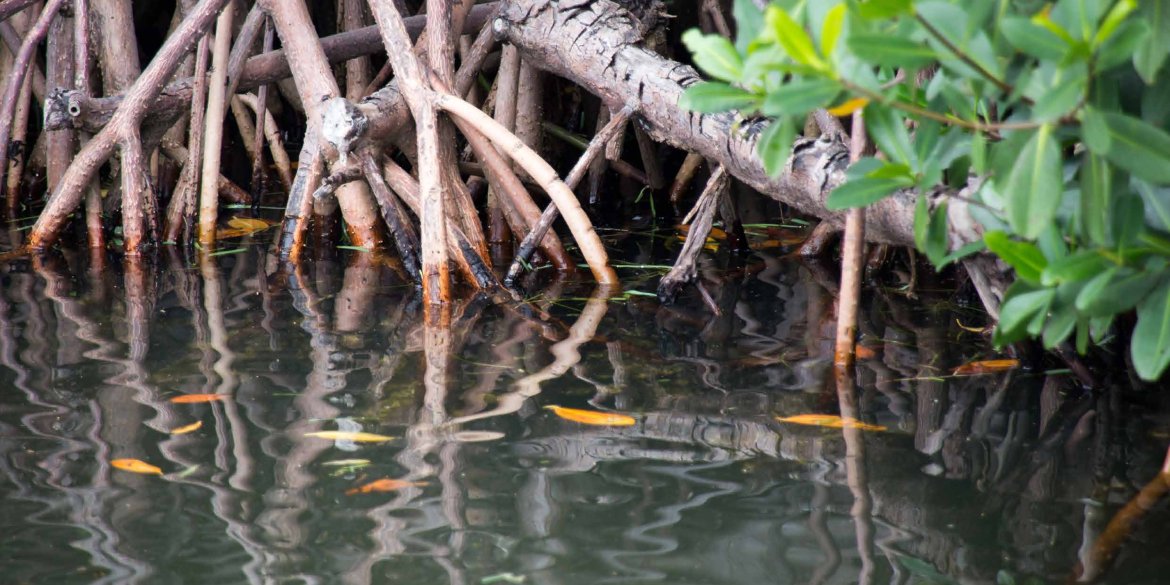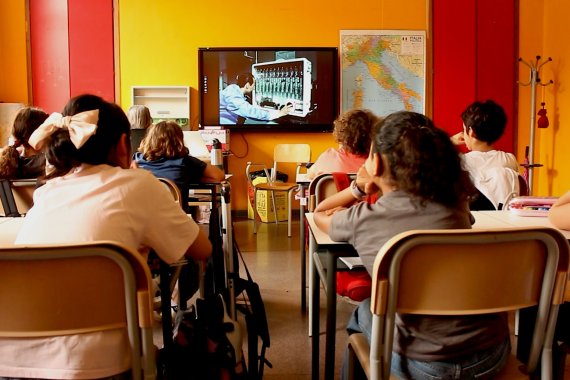New course on how to facilitate a just transition to a greener economy
New course on how to facilitate a just transition to a greener economy
Highlighting innovative strategies and the importance of nature in generating jobs
26 January 2024

Photo © Unsplash/Florida-Guidebook.com
In October 2023, the ITCILO started a 4-week pilot course on job creation through services. The objective of the course was to foster capacity building on the importance of job creation through ecosystem services for decision-makers in different sectors in Latin America and the Caribbean and in Spain.
Nature is a fundamental pillar of the world of work
Half of the world's Gross Domestic Product is linked to natural capital that provides a range of social, economic and cultural services. Simply put, without nature the world could lose half of its Gross Domestic Product. Many of these services are in turn directly related to the generation of direct and indirect employment and economic opportunities.
A first study by the ILO in collaboration with WWF in 2020 estimated that 1.2 billion jobs in sectors such as agriculture, fisheries, forestry and tourism depend on the effective management and sustainability of healthy ecosystems. To ensure the continuity of these employment opportunities, it is crucial to implement practices that promote the sustainable management, protection and restoration of ecosystems such as nature-based solutions (NbS) – where humans work with nature to address societal challenges. These, in turn, offer the opportunity to create immediate jobs "without harm" to nature.
Tsukamoto Mito
Course Speaker and Head of the ILO Investment Employment Service (EMPINVEST)
" We all have a responsibility – individually and collectively – to ensure that we contribute to people's lives and livelihoods while protecting and rehabilitating the environment. Employment-intensive approaches using NBS – in other words, Decent Jobs supporting Just Transitions – are critical to bringing the solutions needed to address structural inequalities, protect the resources we have, and address the root causes of inequality and informality."
Therefore, the ITCILO and the ILO consider this course to be the first of its kind to pave the way for further concrete actions towards a just transition in the region.

Why focus on biodiversity in Latin America?
Biological diversity and ecosystem health are deteriorating significantly, posing an enormous risk to human existence and quality of life. Ninety-four percent of species have been reduced since 1970 in Latin America, making it the region with the highest numbers. The problem is that in many cases nature's services cannot be replaced and are irreplaceable. For example, the destruction of the Amazon threatens the supply of drinking water or the purification of the air.
Gabriel Quijandría
Course Speaker and Regional Director for South America of the International Union for Conservation
"In a megadiverse region like Latin America, the role of Nature in the construction of sustainable development alternatives is enormous and places us in an advantageous position in a global scenario where the need to carry out critical transitions in issues such as energy and transport, agriculture and food systems and/or health is clear. Along these lines, it is key to train decision-makers who can take advantage of the region's natural heritage as one of the most effective and efficient tools to generate economic and social benefits such as better investments and decent employment opportunities."

Measuring work as micro and macroeconomic indicators to drive green jobs
The labour figures make a strong case for the development of national policies at both national and local levels. Today, 75 million people work on nature-based solutions (NbS). There is the potential to create another 20 million new jobs by 2030. However, it is essential to implement "just transition" policies to facilitate this growth.
Vanessa Pérez-Cirera
Course Speaker and WRI's Global Director of Economics
"As Global Director of Economics at the World Resources Institute (WRI), when it comes to measuring the effectiveness of these transitions in achieving people's goals, the quantity and quality of jobs becomes a key indicator. One of their beauties as indicators, from an economistic point of view, is that jobs, unlike many other indicators, can be used in both macroeconomic and microeconomic analyses. That is why, among other things, the ILO's cutting-edge work to quantify and classify jobs is so relevant and timely.."

Highlights of the pilot course
The course lasted 4 weeks where:
- A select group of 40 participants from Spain and 14 Latin American countries entered the course, guaranteeing personalized attention and extensive resources for each attendee.
- Over the course of 4 meticulously crafted modules, which included interactive sessions with more than 13 experts from prestigious institutions such as the ILO, IUCN, WWF and WRI.
- After the presentations by the experts in each session, participants were given more than 30 minutes to ask questions and delve into the areas of green jobs and ecosystem services.
- Thanks to funding from the Spanish Ministry of Labour and Social Economy, the course was made free of charge, making knowledge and experience available to all.
- Breaking with convention, the final module was not only taught, but co-created by the participants themselves. The result? Five crucial empowering conditions for the region to foster green employment opportunities:
- Boosting capacity building
- Mobilisation of economic and financial instruments
- Planning and land use
- Inclusive Governance Processes
- Impact assessment and management (+/-)
Blanca Patino (Technical Officer on Green Jobs for the ILO office in Latin America and the Caribbean) believes that, the promotion of ecosystem services in the region supports the achievement of environmental goals and fosters greater coherence between international and national commitments, especially with regard to the fair and equitable sharing of biodiversity benefits. Diego Portugal Del Pino (ITCILO Associate Programme Officer) underscores that perspective facilitates the understanding of an approach grounded in social justice, which addresses the deep roots of inequality, informality and fragility in Latin America and the Caribbean.
Given that the next Conference of Parties (CoP) of the Convention on Biological Diversity will be in its 16th edition in Cali, Colombia; green jobs through NbS can play a key role in achieving the objectives of the Kunming-Montreal Global Biodiversity Framework.
Testimonials from participants
For our country (Colombia), the technical assistance provided by the ITC-ILO and ILO through their training processes will always be relevant. The different dialogues in which we participated allowed us to address and reinforce fundamental aspects of our commitment to labor justice, sustainable development, and alignment with the goals set forth in Colombia's 2020 Nationally Determined Contributions (NDCs) and current government agenda
Luz Adriana Arboleda
Coordinator of Active Employment Policies, Ministry of Labor (Colombia)
In the face of global challenges, it is necessary to know, understand and become aware of the links between climate change, biodiversity loss and their triple social, environmental and economic impact; and how this can compromise sustainable development by unbalancing the relationship between consumption and the rate of replenishment of economic resources. This course has been instrumental in understanding key concepts about nature's contribution to people, ecosystem services, decent employment and just transition in green jobs, and how nature-based solutions (NbS) can support and improve lives and ecosystem services.
Rosarito Mosqueira Oliver
IDB's Climate Change, Sustainability, Natural Resources and Environment and Disaster Mitigation Division (Bolivia)
As a participant of the course I had the opportunity to listen and exchange points of view, challenges, reflections and proposals with a group of specialists and from Spain on different challenges related to Climate Change and Nature-based Solutions. The experience was very useful and the work carried out by the ILO CIF Facilitators was very timely and effective in deepening the concepts and practices developed around these issues. For my work, in particular, it will allow me to share with producers in Central America and the Caribbean the different visions of Ecosystem Services and how they can effectively contribute to being on the side of solutions and reducing problems while generating new jobs and enterprises.
Luis Montalvan Avendaño
Development Facilitator in Central America and Dominican Republic with Grassroots Organizations of Rural Producers. (ASOPAGUA), (Nicaragua)
The course offered has been an important milestone in the construction of a conceptual framework to identify the links between climate change mitigation and adaptation, ecosystem services and employment generation, and in the understanding of the role of NBS and Ecosystem-based Adaptation as strategies to advance on the path of social resilience. economic, environmental and climate change in LAC. The course has also been a platform for the exchange of experiences and knowledge of great richness, and an opportunity to initiate promising alliances for institutional and synergistic cooperation in the Latin American and Caribbean region.
Roxana Goldstein
International Consultant on Sustainable Development, 2030 Agenda and Localization of SDGs in LAC. University of Buenos Aires, (Argentina)
Want to know more?
To keep up to date with these and other initiatives on climate or nature courses at the ITC-ILO, visit the Development and Investment website or write to us at: climate_nature@itcilo.org
We also invite you to be part of the second edition of this course. You can get more information here.

